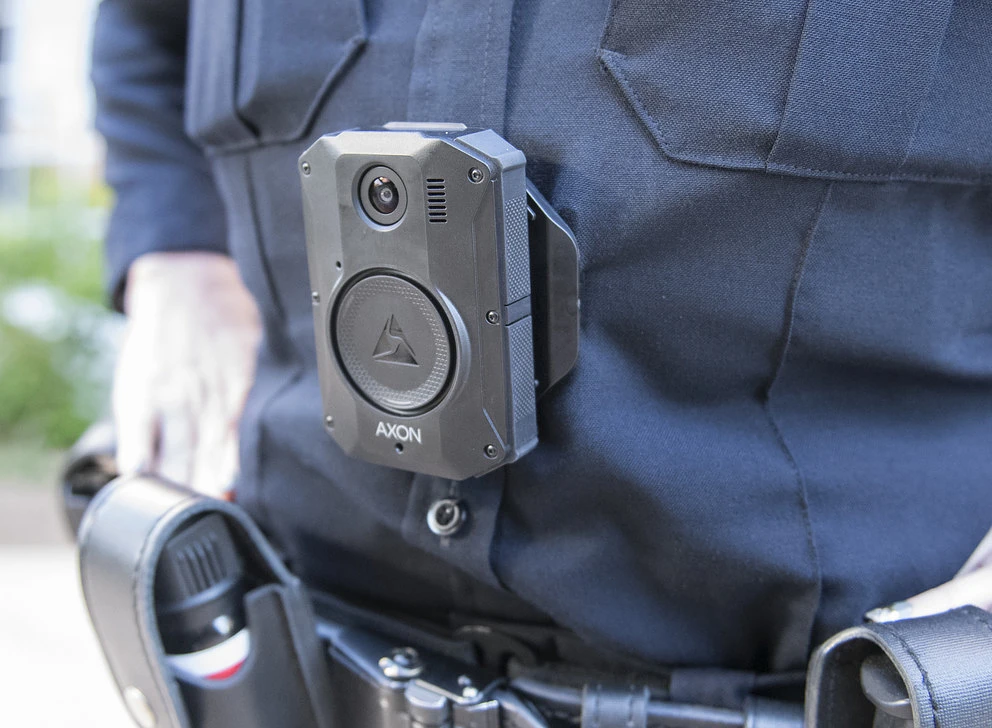UNIVERSITY PARK, Pa. — Beginning May 17, Penn State police officers are equipped with body-worn cameras, fulfilling a University commitment announced in June 2020.
Equipping every officer with body-worn cameras enables Penn State police officers to be more transparent and accountable with the communities they serve. The tool also supports community and officer safety. Body-worn cameras are small cameras worn on a law enforcement officer’s chest to record interactions between the officer and the public. The cameras have a microphone to capture sound and internal data storage to save video footage for later review.
“This important step builds on our ongoing efforts to cultivate a more trusting relationship with community members,” said Charlie Noffsinger, associate vice president for Penn State University Police and Public Safety (UPPS). “Body-worn cameras contribute to officer accountability and give police and citizens another tool that contributes to better policing. While not a solution on their own, body-worn cameras can be used as a promising approach to improve interactions within communities when appropriate policy safeguards and training are in place.”
In recent years, UPPS researched body-worn camera technology and relevant laws, best practices and training. Following this thorough review, in 2020, UPPS requested funding from the University for body-worn cameras for roughly 150 police officers and related funding for video data storage, training and operations as part of its 2020-21 budget request.
All sworn police officers within UPPS are equipped with a body-worn camera and serve the following Penn State campuses: Abington; Altoona; Beaver; Berks; Brandywine; Dickinson Law; DuBois; Erie, The Behrend Campus; Fayette, The Eberly Campus; Greater Allegheny; Great Valley; Harrisburg; Hazleton; Lehigh Valley; Mont Alto; New Kensington; Schuylkill; Scranton; Shenango; Wilkes-Barre; York; and University Park.
“Appropriating funds for this initiative during fiscally challenging times triggered by a pandemic demonstrates that University leaders understand how important this equipment is to our officers and the Penn State community,” said Sara Thorndike, senior vice president for Finance and Business. “Body-worn cameras support safety and accountability during police-citizen interactions and have strong support from the public as they demonstrate transparency in policing operations.”
Equipping police officers with body-worn cameras followed development of a UPPS policy based on state laws and industry standards, development of an internal training bulletin, hosting hands-on training sessions for officers, and leading briefings with multiple University stakeholders, including University leaders and faculty and student groups.
More information about the use of body-worn cameras, storage of video data, UPPS policies and more is available on the University Police and Public Safety website.
Skip past news feed


